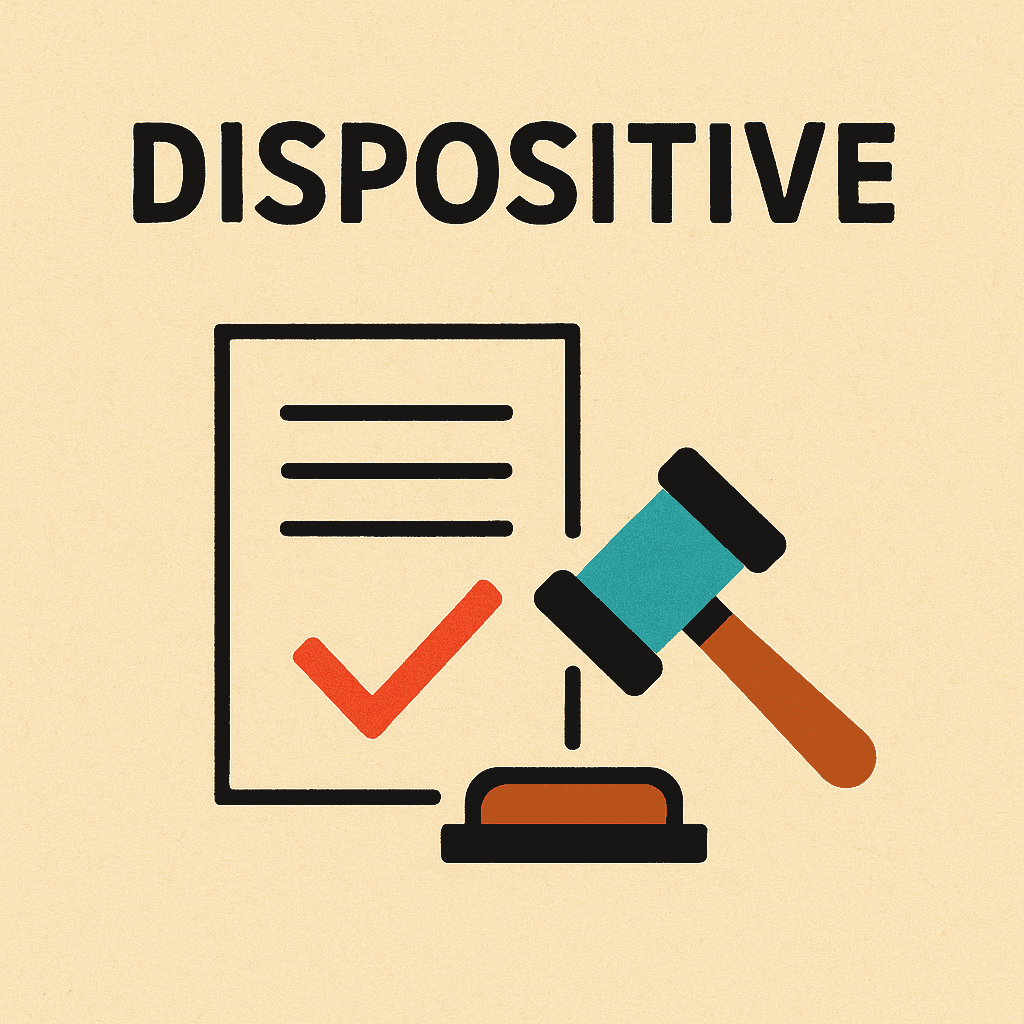Meaning
- Dispositive means decisive or having the power to determine the outcome of something, especially in a legal or formal context. It often refers to evidence, facts, or documents that resolve a case or issue.
Grammar and Usage
- Part of Speech: Adjective
- Usage: Commonly used in legal or academic writing to describe something that settles a matter.
Patterns:
- dispositive evidence — evidence that determines the result of a case.
- dispositive motion — a legal motion that resolves a case without a trial.
- dispositive issue — an issue that decides the outcome.
Common Phrases
- dispositive evidence – evidence that directly determines the case result.
- dispositive motion – a motion that can end the case (e.g., motion to dismiss, summary judgment).
- dispositive factor – a factor that decides the conclusion.
- dispositive issue – a key issue that settles the argument.
Collocations
- dispositive document
- dispositive ruling
- dispositive effect
- dispositive clause (in contracts or wills)
- dispositive finding
Examples
- The court ruled that the evidence was dispositive, leaving no room for further debate.
- Her testimony proved dispositive in resolving the dispute.
- The dispositive motion for summary judgment ended the case before trial.
- The contract contained a dispositive clause that determined property ownership.
- The judge identified the dispositive issue as whether the agreement was legally binding.
- The lawyer argued that the new evidence was not dispositive of the defendant’s guilt.
- The jury’s decision was based on a single dispositive factor.
- The email record had a dispositive effect on the investigation.
- The dispositive ruling clarified how the law should be interpreted.
- Only one dispositive finding was needed to conclude the case.
Synonyms or Related
- decisive
- conclusive
- determining
- final
- settling
- resolving
Antonym
- inconclusive
- uncertain
- debatable
- unresolved
